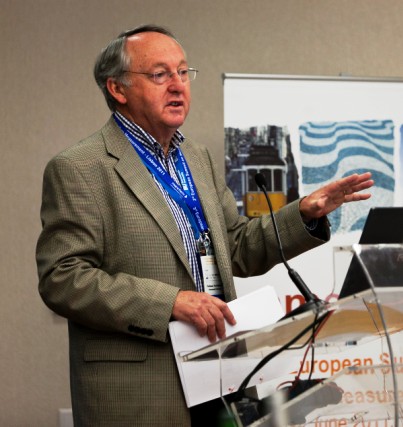Prof Tom Watson of Bournemouth University in England, talks about the International History of Public Relations Conference (IHPRC), which was held recently.
I’m now breathing a little more easily, as we have just published the Proceedings of IHPRC 2011. They are online at http://blogs.bournemouth.ac.uk/historyofpr/proceedings/ where you can read 28 papers from researchers in 15 countries covering topics such as PR history and events, professional and practice matters, national histories, and historiography.
The papers range from the sad tale of Mary the Elephant who was killed on a publicist’s advice, to histories of PR in eight nations, and “proto-PR” with papers on Roman emperor Augustus, medieval writers Nicola Machiavelli and Thomas More, and the mystic St Hildegard of Bingen. Practice issues such as CSR, government relations in the UK, Swedish prime ministerial press conferences, PR specialism in consultancy, litigation PR, crisis management, and PR measurement and evaluation were also reported.
One benefit of a conference in this specialist field of public relations scholarship is that it not only attracts academics from around the world, but also practitioners with an enquiring mind about public relations – and how it has evolved. In 2010, the leading Australian public affairs expert Peter Sekuless presented research on the development of lobbying in Canberra, and British PR consultants Jane Howard and Amy Postle both gave papers. This year, Heather Yaxley, who is both a practitioner and doctoral researcher, talked about how PR careers have developed.
We also have practitioner delegates attend the conference. To see the conference from their perspective, here’s an extract that Matt Cochran from Atlanta agency Cookerly PR, wrote recently on their corporate blog:
“Last week I had the opportunity to attend the International History of Public Relations Conference (IHPRC) at Bournemouth University in the United Kingdom. I was one of only a few practitioners attending; the rest were academics from around the world. All had converged on the beachside town to talk about the history of public relations – from the time of Caesar Augustus up until now – and how that history informs current practice and the field’s future.
“You have to broadly define public relations to include the communication strategy of Augustus. But why not study methods of persuasion through the ages and draw lessons from them? Strategic communication and the reputation it builds is as ancient a practice as politics. For example, Augustus said that his legitimacy was derived from the consent of the Senate and the people. He cultivated a reputation in order to secure and maintain that consent. One way he did that was by protecting private homes from demolition in Rome, even though that meant the Roman Forum wouldn’t be perfectly symmetrical. The resulting good publicity helped him win the loyalty of the people.
“If reputation was important for Augustus, it is exponentially more crucial in a world with intense government and public scrutiny, as well as a democratized media landscape that offers everybody a megaphone – social media, blogs, etc. – to participate in the conversation.”
You can read the full blog at: http://www.cookerlypr.com/2011/07/what-is-public-relations.html.
So you can see the benefits that a young practitioner – Matt is a senior account executive – gains from this conference. He has found an insight from around 2000 years ago on reputation and its management that will shape his thinking and advice to clients.
Already we are planning for the 2012 edition of IHPRC and I have had enquiries from New Zealand, the US, and the UK before the Call for Papers has gone out. Papers from IHPRC 2011 will also be published in a special issue of the top PR academic journal, Public Relations Review. There are a lot of other developments in the field of PR history that will be announced in the coming months, and practitioners will be able to take a full part in them.




